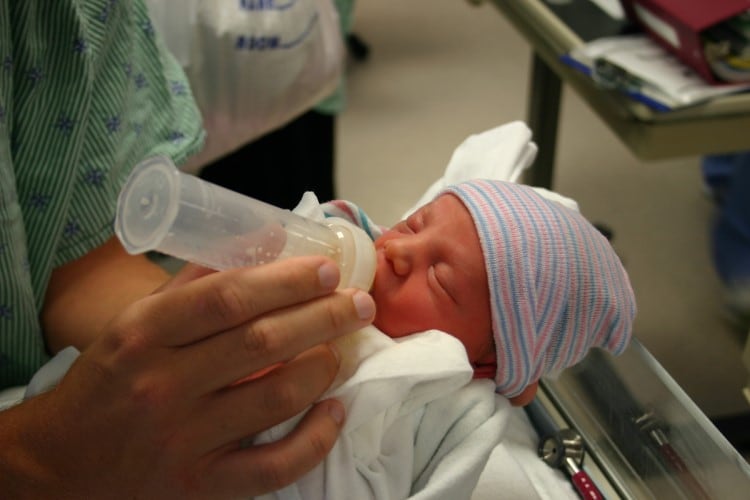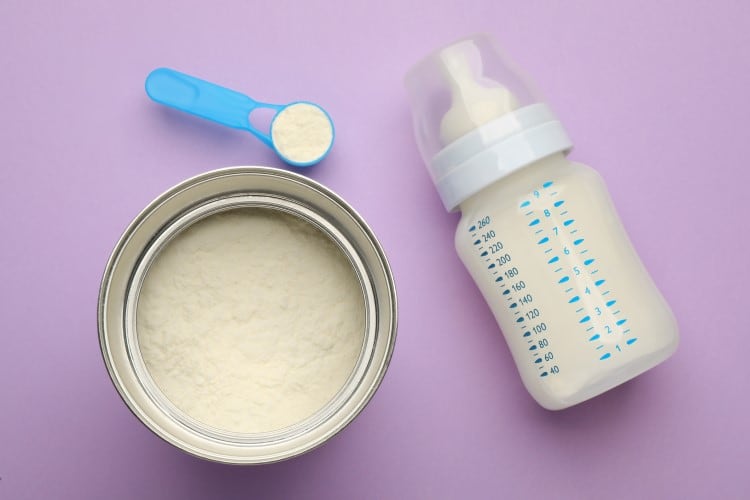FTSE 100 member Reckitt Benckiser Group Plc saw its shares plummet 15% on Friday, March 15 as news of the ruling spooked investors; share prices have started to recover this morning, March 18, but remain around 15% down in the year to date at the time of writing.
At an Illinois district court on March 13, Reckitt Mead Johnson was ordered to pay damages amounting to $60m to the plaintiff, Jasmine Watson, after concluding that the company failed to warn of the risks associated with the use of its cow’s milk-based infant formula Enfamil in preterm infants. Watson was the mother of a preterm baby who was fed Enfamil and later developed a fatal case of necrotizing enterocolitis (NEC), an intestinal disease that mostly affects premature babies. Watson’s lawyers from Keller Postman successfully argued that scientific evidence supported a link between cow’s milk-based formula and the development of NEC in preterm infants.
The firm, which is one of several US law firms that represents parents in NEC/infant formula litigation lawsuits, claims there are ‘numerous randomized controlled trials’ that have confirmed this link. Reckitt Mead Johnson has said it does not believe its products cause NEC and will pursue an appeal.
The ruling was the first to link a baby’s death to the use of cow’s milk infant formula, but hundreds more similar cases await trial. In Illinois alone, a total of 470 infant formula lawsuits had been filed, all against Abbott Laboratories, a competitor to Reckitt Mead Johnson and the maker of bovine milk-based infant formula brand Similac. Of those cases, 405 are pending.
In a statement issued Friday, Reckitt Benckiser Group, of which Reckitt Mead Johnson forms part, said that it was ‘surprised and deeply disappointed with the verdict’ and that the consumer goods major ‘stands by’ the safety of its products.
“We strongly reject any assertion that any of our products cause NEC, a serious gastrointestinal problem that mostly affects premature infants,” the company stated.
“While we continue to offer our deepest condolences to Ms. Watson, we strongly disagree with the jury's decision to fault Mead Johnson and award damages. We continue to believe that the allegations from the plaintiff's lawyers in this case were not supported by the science or experts in the medical community. This was underscored during the trial by a dozen neonatologists.
“It is important to note that this is a single verdict in a single case and should not be extrapolated.
“This case, and others like it, exclusively involve products used under the strict supervision of neonatologists in neonatal intensive care units and provide life-saving nutrition options for vulnerable premature infants.
“We are of course, surprised and deeply disappointed with the verdict and will pursue all options to have it overturned.”
A watershed moment?
DairyReporter reached out to Michelle Madden Dempsey, a Villanova University professor of law who has worked as a plaintiff's tort litigator in a Chicago-based personal injury law firm, to find out what implications this ruling could have on future litigation. With hundreds of similar cases set to be tried, could this ruling influence the outcome of other cases arguing similar claims?
"Each case will be tried by different juries, so this jury’s decision is not likely to influence other jury’s decisions," the professor told us. "Indeed, I suspect that, during the voir dire process, future potential jurors will be asked if there are aware of any litigation regarding this matter – and that any potential jurors who are aware will be excluded from service through a pre-emptory challenge by the defence.
"Surely, if any potential juror stated that they are aware to this verdict and would be influenced by it, that juror would be 'struck for cause', i.e. excluded from the jury by the judge, without requiring either party to use one of its limited peremptory challenges."
All that said, this verdict does not bode well for the defendant. Clearly, this jury was convinced by the plaintiff’s experts – so it stands to reason that future juries may be similarly convinced."
Turning to the amount of damages awarded to the plaintiff - whose legal team was seeking $25m but received more than double that amount - Dempsey said it was rare for a jury to award a greater amount of damages than the plaintiff requested. "The large verdict indicates that the jury was sympathetic to the plaintiff’s loss, which is not surprising in a case where a tiny baby suffered a horrible death and the mother/family is left to grieve her child’s loss. It is a heart-breaking experience, of course, and the jury must have been deeply impacted by the testimony it heard."
She added that the verdict may be one of the largest in St. Clair County's history. "Typically, the largest verdicts in Illinois are handed down in Cook County, where Chicago is located. While I’m not entirely sure, I believe this verdict might be one of the largest in St. Clair County history."



